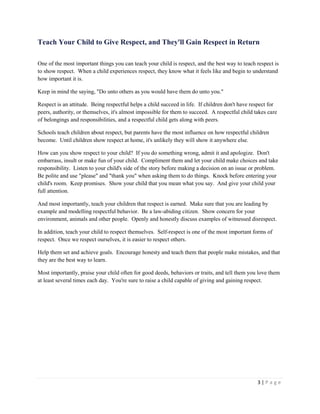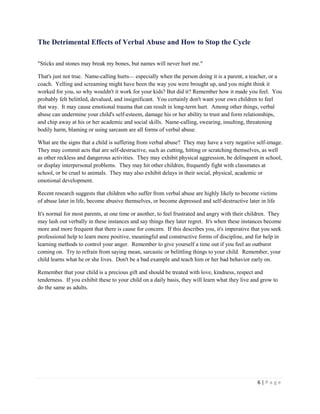The document discusses several topics related to parenting and teaching children respect. It emphasizes that the most effective way to teach children respect is by treating them respectfully and being a good role model. Parents should communicate openly with their children without distractions, praise good behavior, and avoid verbal abuse which can damage children's development and self-esteem. A parent's role evolves as children grow into more independent individuals.






